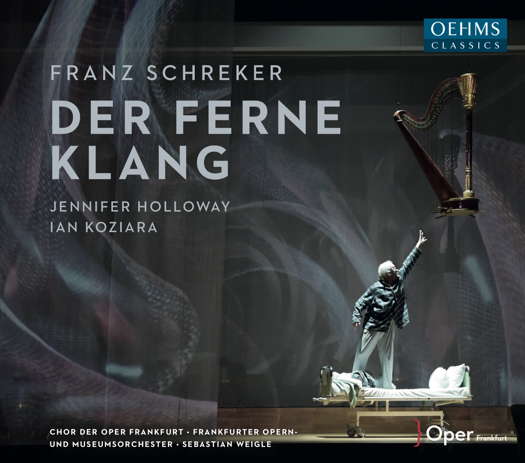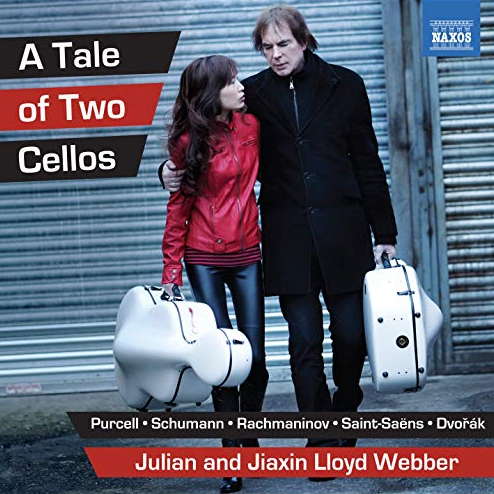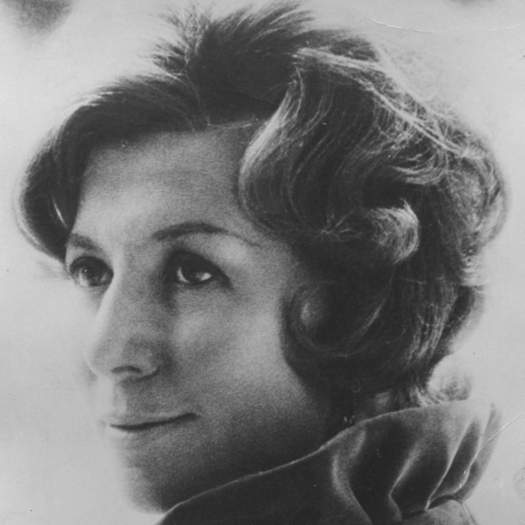- Benjamin Britten
- sex
- Inge Borkh
- Lowell Liebermann
- Jacques Charpentier
- Leivi
- Lucy Carter
- Gibson Melody Maids

Exciting and Superbly Executed
Franz Schreker's opera 'Der ferne Klang', highly recommended by GERALD FENECH
'Sebastian Weigle conducts this stirring but difficult work with wonderful intuition, bringing out all the luscious orchestral beauty with disarming clarity.'
Franz Schreker (1878-1934) was an Austrian composer, born in Monaco. Following the early death of his father the family moved from Linz to Vienna (1888), where in 1892 with the help of a scholarship he entered the Vienna Conservatory. In 1900 he graduated as a composer, and in 1907 he formed the Vienna Philharmonic Chorus which he conducted until 1920.
November 1909 saw the controversial premiere of the complex orchestral interlude 'Nachtstuck' from his first opera Der ferne Klang, a work he had been toiling with since 1903. The opera premiere took place in 1912 in Frankfurt, and the piece consolidated his fame which by now had reached considerable levels.
Listen — Schreker: Zwischenspiel (Der ferne Klang Act III)
(CD3 track 6, 2:53-3:53) ℗ 2019 OehmsClassics Musikproduktion GmbH :
In early 1913 Schreker was appointed full professor at the Vienna Music Academy, a breakthrough that heralded a decade of great operatic success which was only temporarily halted by the Great War. The composer was also an excellent music teacher and some of his collaborators were the likes of Berthold Goldschmidt, Jascha Horenstein, Ernst Krenek and Artur Rodzinski. Schreker's fame and influence were at their peak during the early years of the Weimar Republic, when he was the most performed opera composer after Richard Strauss. But after the turbulent reception given to Irrelohe in Cologne in 1924, the decline of his artistic fortunes was on the way. Political developments and anti-Semitism soon brought the composer's career to an end. Indeed, by the time of his death in 1934, Schreker was considered irrelevant as a composer and marginalized as an educator.
Primarily an opera composer, Schreker developed a style characterized by a mixture of Romanticism, Naturalism, Symbolism and Expressionism, and although he was influenced by such great names as Wagner and Richard Strauss, his mature style betrays a highly individual harmonic language, which, although broadly tonal, is inflected with chromatic and polytonal passages.
Der ferne Klang was his first stage-work and his first great success. Schreker completed the three-act libretto in 1903, but the music had to wait almost ten years to be completed. The great Alban Berg prepared the vocal score in 1911, and the work is dedicated to the eminent conductor Bruno Walter. Following the premiere on 18 August 1912 at the Frankfurt Opera, the opera continued to be staged regularly for the next two decades. Following the rise to power of the Nazis and their ban on 'Entartete Musik', the opera disappeared from the repertoire altogether. Der ferne Klang had to wait till 1989 to start its rehabilitation.
Listen — Schreker: Du willst wirklich fort, Fritz (Der ferne Klang Act I Scene 1)
(CD1 track 2, 0:00-0:55) ℗ 2019 OehmsClassics Musikproduktion GmbH :
Thirty years on, this exciting creation has again taken its rightful place among the great operas of the twentieth century. The story is very tragic and disconcerting. It concerns two lovers, Fritz, a budding yet ambitious and self-centred composer, and Grete, the girl he loves. Fritz is obsessed with finding 'the distant sound' (the opera's name) that he feels inside him. Amidst many twists and turns Fritz leaves his sweetheart on two occasions in search of 'the distant sound', while Grete, heartbroken, has to live a life of misery and humiliation.
Listen — Schreker: Was ist das? Du sprichst so seltsam!
(Der ferne Klang Act II Scene 8)
(CD2 track 11, 0:00-0:58) ℗ 2019 OehmsClassics Musikproduktion GmbH :
When Fritz composes an opera Die Harfe that turns out to be a flop, he despairs, but just then Grete finally comes back into his life, only to be too late. Indeed, Fritz does hear 'Der ferne Klang' and joyfully begins to write a new ending to his opera, but before he can finish his work, he dies in the arms of his beloved, losing everything and everyone.
Listen — Schreker: Grete! Höst du den ton? (Der ferne Klang Act III Scene 15)
(CD3 track 13, 0:00-1:00) ℗ 2019 OehmsClassics Musikproduktion GmbH :
Sebastian Weigle conducts this stirring but difficult work with wonderful intuition, bringing out all the luscious orchestral beauty with disarming clarity. The chorus and orchestra respond with intense enthusiasm, while the singers are all immersed in the dramatic and compelling sound world of their parts. An exciting and superbly executed German operatic masterpiece that deserves all the advocacy it can get. Highly recommended.
Copyright © 20 April 2021
Gerald Fenech,
Gzira, Malta

CD INFORMATION - FRANZ SCHREKER: DIE FERNE KLANG




